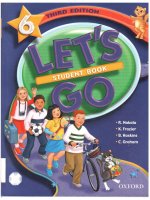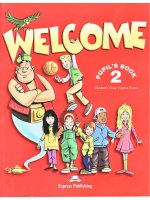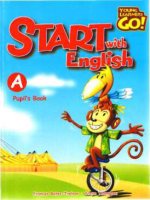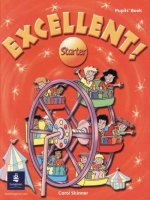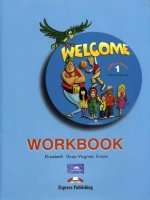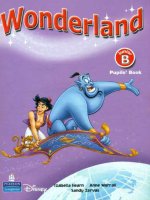Academy star 6 pupils book 6
Bạn đang xem bản rút gọn của tài liệu. Xem và tải ngay bản đầy đủ của tài liệu tại đây (48.2 MB, 146 trang )
Stars
quarmits
mạcmịllan
education
quarmits
I
Pupil's Book
Steve Elsworth
Jim Rose
quarmits
macmillan
education
Scope and sequence
R
Present perfect and past simple
questions: Have you ever visited a
bird sanctuary? When did you go?
Bi
Past perfect: When his mum arrived, Peter
had invented a new drink.
Reflexive pronouns: I'm teaching
myself to play the guitar. This man
films himself giving lessons.
Ar
Modals of deduction: It can't be a banana.
It may/might/could be a leaf. It may not/
might not be a leaf. It must be a flower.
Sense verbs + adjective/noun:
It looks like a pepper. It tastes familiar.
It feels hard. It smells like cheese.
A
Vocabulary
Grammar
Welcome
Buildings, camping items,
emergency items/events,
outdoor activities, jobs
I’ve already written a poem.
1 haven't visited Egypt yet.
Have you ever swum in the sea? Yes, 1 have.
Wildlife and conservation
Present perfect and past simple:
She’s taken photos since 2012.
She took this photo last winter.
p4
1
Language in use
Unit
Life in the
wild
p8
Working with words:
compound nouns
Ri
ini
Reading time 1: Tail's stone
2
Inspiring
ideas
p22
Exploration
Working with words:
suffixes (-ous)
Sr
Review 1
Describing things
3
Senses
p34
Working with words:
antonyms
Ini
al
Reading time 2: It can’t be true!
4
Get
involved!
p48
quarmits
The environment
Working with words:
synonyms
Present perfect continuous: They've been
planting trees. He’s been lying here since
10 o’clock.
Present perfect continuous
questions: Have you been working
hard today? What have you been
doing?
Reported requests and commands:
/ asked you to tell me a story. 1 told you not
to sing.
Present continuous for future
arrangements: Where are you going
on holiday? What are you doing at
the weekend?
Reported speech: They said they had
developed a great product. They said I could
fly over the city.
Question tags: The graphics looked
impressive, didn't they? The reviews
have been good, haven’t they?
Reported Wh- questions: She asked me
how long the race was. She asked me where
1 trained.
Reported yes/no questions: He
asked US if we knew about capoeira.
We asked him if it was like karate.
Ar
Ini
al
Review 2
5
Travel
adventures
p60
6
Sell, sell,
sell!
p70
Adventurous activities
Working with words:
prefixes (un- and in-)
Advertising
Working with words:
alliteration
Mi
Fil
inf
Ac
Ur
ter
pe
Review 3
7
Winning
ways
p82
Sport
Working with words:
suffixes (-ness)
Reading time 3: Team spirit
8
In
cyberspace
p96
Internet safety
Working with words:
homonyms
Al
Inf
at
,
Passive voice (past simple):
My computer was hacked last night. All my
exercises were stolen.
Modal verbs (review): You might
have the wrong password. But 1 could
log in yesterday, so it must be correct.
Ar
Passive voice (present perfect): The
cinema hasn’t been painted. The seats
haven't been delivered.
Future passive: The film will be
based on a real-life story. It won't be
released until the end of the year.
Fit
Re
un
Review 4
9
Fun with
films
p108
Films
Working with words:
suffix (-at/on)
Re
op
Reading time 4: Lost in cyberspace
10
A brighter
future
p122
Improving the world
Working with words:
similes
Review 5
Second conditional: If 1 had my phone, I’d
take a photo. If you took a photo, 1 wouldn't
forgive you.
I wish + past simple/could: I wish
our playground wasn’t so messy. 1
wish we could play basketball outside.
Mi:
Me
dre
Reading
Listening
Writing
Speaking
Biographies
A talk
A biography
Read for specific
information
Compare photos with
audio information
Use paragraphs to
organise information
Describe a wildlife
photo
An information text
A talk
An opinion essay
Summarise a text
Listen for similarities
and differences
Understand the
structure of a forand-against essay
A science-fiction story
An interview
A story
Infer information from
a text
Listen for the main
idea and details
Write the next part
of a story
An information text
A conversation
Infer information from
a text
Listen for advice and
suggestions
Mixed text types
An interview
A review
Find specific
information
Listen for important
facts and details
Understand the
structure of a review
Advertisements
A talk and discussion
An advertisement
Understand
techniques in
persuasive texts
Listen and apply
information to a task
Use persuasive
language
Reach a decision
about a class
outing
A magazine article
An interview
Infer meaning from
a text
Listen for specific
information
Write a personal
account from notes
Ask for information
about classes
A website article
An interview
A research report
Read for detailed
understanding
Listen and make
inferences
Use headings and
sub-headings
Express certainty
and uncertainty
Film reviews
A talk
A film review
Recognise the writer's
opinion
Listen for important
facts and details
Understand features
of a film review
Mixed text types
Monologues
A poem
Make inferences and
draw conclusions
Identify the opinions
of different speakers
Understand and use
features of poetry
Compare and
contrast two items
Describe objects
Think about it!
Thinking skills: analysis
and decision-making
Research
information
online
Screen viewing time
Use an index
Choose a habitat
Thinking skills: interpreting
and evaluating visual
information
Animal super-senses
Thinking skills: analysis
and classification
quarmits
Write an information
leaflet from notes
Make and respond
to suggestions
Learning
skills
Make our school a better
place
Use a
dictionary
Self
reflection
Thinking skills:
conceptualisation
Give advice and
recommendations
Give a talk about
a film
Give a talk about
someone you
admire
Choose the best holiday
Thinking skills:
analysis, evaluation and
decision-making
Design a toy
Thinking skills: evaluation
and planning
Choose a new sport
Thinking skills: establish
priorities and decide
Do a class survey
Thinking skills: evaluation
of collected information
Solve a visual puzzle
Thinking skills: analysis
and drawing conclusions
A better world
Thinking skills: planning
and problem-solving
Check and
correct your
own work
Organise
your study
time
Take notes
on a talk
How to
memorise
vocabulary
Work
together
effectively
Give and
respond to
feedback
u
Welcome
LEVEL 6
Hi, there! I’m
Paul and I’m 12.
I love science.
This year I want
to learn more
about wildlife
and how to
protect the
environment.
Hi, everyone!
My name’s
Julia. I’m 11. My
favourite subject
Is geography.
Ễ
This year I want
to study maps
and learn about
the history of
different cultures.
F
1
Hl! I m Laura.
I’m 11. I love
English and
creative writing.
This year I want
to learn how to
write poetry and
science-fiction
stories.
Hello! I’m Sam
and I’m 12. Ml
favourite subject
is computer
studies. This
year I want to
learn more about
cybersecurity.
quarmits
2
3
Come and join us! What
would you like to learn
about this year?
Welcome Meet the characters
WB: pages 4-5
Lesson 1
1
rM 1,1
Meet the Academy Stars
Listen and complete the notes.
Where do
they live?
Favourite
subịect(s)?
Pau!
on a farm
—
Julia
—
2
Ẳ
what do they want to do
in the future?
wildlife photographer
geography
history
playing tennis
Laura
Sam
what are their
hobbies?
-------- - ------—
—
—
—
writing stories
—
write computer code
cybersecurity
quarmits
Make a list of the things you have already done or haven’t done yet.
Use the suggestions below or your own ideas. Then tell a partner.
see a leopard in the wild
play a musical instrument
put up a tent
write a poem
fly in a hot-air balloon
use a compass
go kayaking
act in a play
I’ve already acted In a play, but I haven’t put up a tent yet.
3
ệỀÍ' '
Ask a partner. Use the prompts below and your own ideas.
swim / in the sea
see I elephant
in the zoo
sleep / in a
sleeping bag
visit/the
countryside
learn / first aid
Welcome Talk about interests and experiences
WB: pages 4-5
Vocabulary
Lesson 2
——
Look at the picture. Quickly name ten things you can see.
2
Look and find. Write four words for each category.
skyscraper
1
buildings
2
camping items
3
emergency items/events
4
outdoor activities
5 jobs__________________________________________________
3
Ệ3'
Look at the picture. What’s happening? Make sentences with a partner.
I People are kayaking
& /.in the pond.
A girl is playing L
quarmits
■
Welcome Vocabulary review
WB: pages 6-7
quarmits
quarmits
In 2009, he and his team explored Mount Bosavi,
a volcano in Papua New Guinea, where they
discovered a new species - a woolly rat as big as
a cat! As a TV presenter, he's caught snakes and
swum with sharks. He also makes exciting nature
programmes for children. Deadly 60 is all about
predators.
Steve has also written five books about animals and
is now studying for a degree in biology so he can
learn more about animals. He believes that TV and
books are a great way to help people appreciate
nature and understand that animals are not
frightening.
A».,
MIREYA MAYOR is a scientist and conservation
expert who works to protect animals. She was born
in the USA in 1973.
' Wa
.jt’ fJK
quarmits
Mireya wanted to be a lawyer, but at university she
discovered that some animals might disappear and become
extinct unless we help them. So she decided to study animals,
and spent two years in the jungle researching mon
In 1999, she started her first wildlife show on National
Geographic TV, Wild Nights. Since then she's travelled to lots of
countries to do research and make programmes to tell people
about conservation. In 2000, Mireya discovered a new kind of
lemur in Madagascar, the mouse lemur. This species is so small it
can fit in your hand. She told everyone that the cute little animal
was endangered. Because of this, the animals' habitat became a
national park to protect them.
Mireya has also written an autobiography the story of her life as a scientist and explorer.
She has just joined the Amazon
Conservation Team, a group of
>.
_
people who are trying to save the
■
rainforest - a habitat for thousands
of different species of plants and
animals. Mireya wants people to
■ f ’Si?
understand how amazing animals
\
are and to protect the endangered
ones before it's too late.
Unit 1 Reading skill: use images to help understanding
WB: page 8
Lesson 2
1
Le
Reading comprehension
Read the biographies on pages 8-9 again and complete the table. [Be a star!
Steve Backshall
Name
Born
1
Mireya Mayor
1973
Profession
TV programme name
Discovery
Number of books written
2
Write T (True) or F (False). Then read again and check your answers.
1
Steve only became interested in animals when he was an adult.
2
Steve studied biology at university before he worked with wildlife.
____
3
Steve believes TV helps people understand animals and nature.
____
4
Mireya has done research in the jungle.
____
5
Mireya believes we will Lose some animals if we don't protect their habitats.
____
6
Mireya thinks we should only save small animals.
$
3
F
quarmits
____
Which skills do you think are useful for a wildlife expert?
Underline, then add two more ideas.
• making maps
• taking photographs
• knowing about weather
Ộ Values
• understanding science
Why is it
important to
protect wildlife?
• speaking different languages
Working with words
Compound nouns
Match the words to make compound nouns.
A compound noun is a noun
that is made up of two or
more words. This is usually
a noun + a noun:
rainforest = rain + forest
wildlife = wild + life
10
,
a site
1
earx.
2
camp
b brush
3
life
c fish
4
back
d bone
5
paint
'e phones
6
star
Unit 1 Reading skill: read for specific information
WB: page 9
f
boat
Working with words: compound nouns
2
He's only 16. but he has won ị won many
Lesson
3
Grammar
photography
prizes.
1
Graphic
Last year, he won I has won Young Wildlife
S3Photographer
Look and read.
of the Year.
Grammar
Present
His parents helped I have helped him travel to wild
places. perfect and past simple
He has travelled / travelled to four different continents last year.
She’s taken I photos
She’s taken
She
2
took
Lots
this
since
of
photo
2012
photos
last
of
wildlife
winter
Circle the correct answer to complete the sentences.
1
2
quarmits
Mateusz Piesiakfhas been)/ was interested
in wild birds since he was a baby.
3
4
3?
5
6
He has come I came back from Siberia three weeks ago.
7 While he was there, he took / has taken thousands of photos of birds.
8
He has taken / took photos of other animals since then, too.
Ẹp Take turns asking and answering with a partner. [Be a star!
3
1
What are you interested in?
3' When did you start doing it?
2
How Long you have been interested in it?
4
Have you bought any equipment?
What are you Interested in?
How long ... ?
Unit 1 Use the present perfect and past simple to talk about experiences and events
WB: page 10
Lesson 4
Language in use
record
migrate
sanctuary
unbelievable
Have you ever visited the bird
sanctuary?
Yes, I have. I loved it!
When did you go?
I went with my mum Last year.
<£> What did you do there?
.
I watched an expert put a ring on
a bird’s leg to record where it goes.
Look, I took a photo.
& What kind of bird is that?
X It’s a swift. They migrate from China
every year. They fly over 120,000
kilometres.
'S That’s unbelievable! How long have
quarmits
you been interested in birds?
For about six years.
©
Complete the questions with the correct form of the verbs.
Have
2
you ever
visited
(visit) the wildlife park?
When___________ you____________ (go)?
Yes, I have.
Last summer.
What___________ you____________ (do) there?
4 ___________ you____________(take) any photos?
I watched the monkeys.
No, I didn’t.
How long___________ you
you____________ (be) interested in animals?
Think of places you could visit to see animals and
what you could do there. Use your own ideas and the
ideas in Activity 2 to make a new dialogue. (Be a star!
L'Y Have you ever visited the wildlife park?
& Yes, I have. I loved it.
!
" When did you go?
Unit 1 Use the present perfect and past simple to ask about experiences
WB: page 11
Since I was five
Lesson 5
íbLe
®
1
Listening
Look at the photos and answer the questions.
1
What animals can you see? Where are they?
2
What do the photos have in common?
at risk
danger
behaviour
get rid of
chance
survival
1
ÌS.
ina
^0)1.4 Listen and check your ideas in Activity 1. [Be a star!
)
What is ‘mutualism’? Tick (>/) the correct definition.
ave
quarmits
a When predators work together to catch prey.
b When animals from different species work together to help each other.
c When animals of the same species protect each other from predators.
1.4 Listen again and complete the notes.
1
5
Ostriches can't1
hear
or
2
Oxpeckers are 1_____________ .
2 _____________ very well. Zebras can't
They2_____________ parasites from
3 _____________ very well. Ostriches
a rhino's 3_____________ . Parasites
can 4_____________ clanger from far
4 _____________ rhinos and
away. Zebras can 5_____________ and
5 _____________ their blood. Rhinos can't
6_____________ it. So when one of
get the 6_____________ off their backs so
them 7_____________ , the other one
the birds7_____________ them. This helps
8_____________ too.
the rhino, and the birds get8___________ .
® Ẹp Discuss the questions.
1
Which animals do you think are a danger to ostriches and zebras?
2
What’s the difference between mutualism and the predator-prey relationship?
Unit 1 Compare photos with audio information
WB: pages 12-13
ỊỊ
Look at the texts on pages 8-9 again. Answer the questions
a What is a biography?
b What information do you expect to find in a biography?
Use the texts to number the paragraphs of a biography in order (1-4).
a early Life and start in profession
____
b who the person is and date and place of birth
____
c other achievements and beliefs
____
d working life, experiences and discoveries
____
®
Read the notes from a biography of the conservationist Jane Goodall
Number them in order.
hits also written many books
born 1Ị34, England
has helped countries In Africa
protect wildlife
'\A)5& - travelled to Kenya to visit friend,
met famons scientist Louis Leakey
while working with Leakey discovered
chimpanzees can make and ixse tools
believes that animals are clever and we
should take care of them
ỉ^6ớ - went to Tanzania to study
chimpanzees by sitting with them
jane Ljodall Is a world-famous
conservationist and writer on animal
behaviour
_
as a child, observed birds and animals made notes and drawings
Leakey gave her a job as researcher
on chimpanzees
quarmits
Unit 1 Write a biography
WB: pages 13-15
Use paragraphs to organise information
4
Which section of the biography would each sentence in Activity 3 appear in?
Match paragraphs 1-4 in Activity 2 to letters a-j.
Paragraph 1
h, b
Pa ra g ra p h 2___________
5
Paragraph 3___________
Pa ra g ra p h 4___________
Work in pairs to write a biography of Jane Goodall. Use the notes
in Activity 3 and the texts on pages 8-9 to help you. (Be a star!
Jane Goodall is a world-famous
conservationist and writer on animal
behaviour. She was born in England
In 1934.
As a child, she observed birds
and animals, and...
quarmits
Learning to learn
Research information online
The internet is a great place to look for information - but it can be difficult to find exactly
what you’re looking for. Follow these tips to find the right information!
•
Are you using the right keywords? You want to research predators in the ocean,
but typing predators gives you a lot of responses that aren’t useful. Make your
search more detailed, e.g. predators ocean.
•
Are you using the best websites? The websites that appear first are usually the
most useful - but check who wrote them and when. Look for websites you can trust,
for example, a site like National Geographic will give you better information than a
company trying to sell you a holiday.
'.
•
Is the information correct? If you’re not sure whether you can trust the website,
look at information on another website. Is it the same?
Try searching for further information about Jane Goodall to include
in your biography.
Unit 1 Learning to learn: research information online
WB: pages 13-15
15
Lesson 7
1
Speaking
background
bottom
foreground
top
f Look at the photo. What can you see?
What do you think is happening?
2
^0) 15 Listen and complete the description.
How is it similar I different to your ideas in
Activity 1?
The main focus of the photo is a 1
turtle
and some2___________ fish. They are swimming
together in the ocean. In the background there are
some black fish. At the 3___________ of the photo
you can see some 4___________ . It looks like the
fish are on 5___________ of the turtle. It’s possible
that they are 6___________ it - perhaps they are
7___________ the turtle. I really like this photo
because it shows 8___________ working together to9____________ each other.
It also has beautiful, bright10___________ .
3
Number the stages of describing a photo in the same order as Activity 2.
a
quarmits
say what you think is happening
b describe the general situation
c
4
d
give your opinion of the photo
e
describe other details in the photo
describe the main focus
The main focus of the photo is ...
Choose one of the photos. Prepare a short
In the background I foreground ...
description of it. Use the phrases and Activities 2
At the bottom / top ...
and 3 to help you.
It looks Like ... / It seems as if...
It’s possible that... / Maybe ...
5
Ệs'
Describe your photo to the class. Listen to other descriptions
of the photo. Were your ideas the same or different? (Be a star!
Unit 1 Describe a wildlife photo
WB: page 16
top
quarmits
d...
Th
stc
Reading time 1
1
^»)1.6 Read the story on pages 18-20. What does Tali want to do?
Why isn’t he allowed to do it?
‘Ti
lt V
‘Yc
ba
Wl
qu
‘Di
the
Tali lived in a beautiful village at the foot of Green
Mountain. The men in the village went fishing every day
to catch fish for the people to eat. Tail’s father was a
great fisherman and everyone respected him.
‘Le
qu
the
plc
‘Why can’t I go fishing?’ said Tali unhappily. ‘It’s so
unfair!’
‘Lc
Tal
‘Your father has already told you,’ said his mother.
'You’re too young. Fishing is full of dangers.’
Tm not tall,’ Tali said to his friend Bala, ‘and I’m not very
strong yet. But I’m fit - I can run, jump and climb - and
I’m clever!’
quarmits
Bala agreed. Tali was very intelligent! At night, when
they observed the sky, Tali remembered all the names
of the stars. When they climbed to the top of the Great
Pyramid, Tali knew all the hills and villages around
them. And he was curious. He always wanted to find out
more about the world and he loved to discover things!
‘Look where the lightning hit the ground.’
There was a red glow.
‘Come on, let’s look,’ said Tali. It was a
red hot stone.
‘Don’t touch it,’ said Bala as he pulled his
friend back.
‘Let’s come back for it tomorrow,’ Tali said.
hMhri
ỀiiiiìtỉĩiìiìM..
Reading time 1 Read a traditional story
‘Ti
an
‘Bl
is 1
rivi
Late one afternoon, as the boys were
walking home from the river, there was
a terrible storm. They started to run for
shelter when suddenly Tali stopped.
- . ....
Th
Tai
Th
Th
loc
the
se<
‘C(
He
‘Ye
The next day, the boys went back to look for the
stone.
‘There it is! It doesn’t look very special,’ said Bala.
It was small, grey and dull. It looked like a teardrop.
‘You’re right, it’s boring,’ said Tali. And he threw it
back on the ground.
When the stone hit the ground, it started to spin
quickly. Then it slowed down and suddenly stopped
‘Did you see that?’ asked Bala. Tali picked up
the stone.
‘Let’s throw it again.’ Once more, the stone turned
quickly on the ground and then stopped. Every time
the boys threw the stone it stopped in the same
place.
‘Look, Bala! It always points at Green Mountain,’
Tali said. ‘Let’s keep it. It’s a really special stone.’
That evening, while they were having dinner,
Tail’s mother and father were talking in low voices.
They seemed very worried.
quarmits
‘The weather is so bad. Many days have passed
and we haven’t caught any fish,’ said Tail’s father.
‘But it’s too dangerous to go out in the boats. The fog
is too thick and you can’t see how to get back to the
riverbank.’
The fishermen always navigated their way back by
looking at Green Mountain. That way, they didn’t hit
the rocks. However, these days it was too difficult to
see the mountain.
‘Can I go outside?’ asked Tali.
He wanted to play with the special stone. w>
‘Yes, but don’t go too far,’ said his mother.
Reading time 1 Develop reading fluency
Reading time 1
Tali ran outside and found his friend Bala
already waiting for him.
‘Did you tell your father about the stone?’
Bala asked.
‘I haven’t told him yet. He’s worried about the fog.
They can’t go fishing.’
Tali threw the stone on the ground and the boys
watched it spin.
‘What’s that?’ asked Tail’s father, as he stood
behind them in the doorway.
‘It’s a special stone,’ Bala said. ‘It spins and
points to Green Mountain.’
‘That’s unbelievable! Do you think it could help
us on the fishing boats?' Tail’s father asked.
They ran down to the river and got onto one of
the boats. Tail’s father threw the stone down
and watched it spin and stop, pointing to Green
Mountain.
quarmits
‘Everyone in the village is hungry. We need to try
to catch some fish. We'll take the stone with us
tomorrow.’
The next day the fishermen went out on the
boats in the fog. Tali and Bala waited and waited
on the riverbank, but the boats didn’t come.
They were very tired and very worried. After
many hours, they heard excited voices cheering
through the fog.
‘The special stone works! I can see the
riverbank,’ said one man.
Tali and Bala ran to meet them.
After that, the fishermen always took the special
stone on their fishing trips. And they also took .
Tali and Bala!
,
Reading time 1 Read a traditional story
Reading time 1
1
Activities
Read the text on pages 18-20 again. Circle the
correct word(s) to complete the sentences.
1
Tail’s parents thought he wasn’t clever /(oid)/ brave
enough to go fishing.
2
Bala thought Tali was clever / boring I a great
fisherman.
3
The rain / lightning / ground made the stone very hot.
4 The stone started spinning I jumping I flying.
5
The fishermen couldn’t find their way when it was sunny / raining / foggy.
6
At first, the boys were not sure the sun I the fishermen I Tail’s mother would return.
7 When the boat returned the fishermen were sad / excited / angry.
2
Match the action to the emotion.
©
How did Tali feel when ... ?
a bored
1
he couldn’t go fishing
2
he saw the red glow
b worried
3
he saw the stone the next day
c unhappy
4
he saw the stone spin
d curious
quarmits
e happy
5 the boats didn’t return
6
3
f
he heard the voices in the fog
surprised
© £1 Discuss the questions. [Be a star!
1
What did the lightning do to the stone?
2
Why did the stone point to Green Mountain?
3
How did Tail’s discovery change things for the fishermen in his village?
4
Do you think it was fair when his father told Tali he couldn’t go fishing?
Why? / Why not?
4
5
What do you think happens to Tali in the future?
6
Do you think this is a true story?
B)
© Watch the video version of the story and answer the questions.
1
How is the beginning different to the story in the book?
2
Do you prefer the written story or the video? Why?
3
What is good about a) written stories? b) videos and films?
Reading time 1 Give a personal response to a text
Lesson 1
$
1
Reading
aim
attitude
develop (developed)
fail
narrow-minded
navigate
open-minded
progress
succeed (succeeded)
upside-down
Look at the article and the map. Answer the questions.
What is unusual about the map?
3
2 Why do you think it is like this?
Read quiz questions 1-4 on page 23.
Which ones can you answer?
M’>)1.7 Read the article quickly to check your answers in Activity 1.
How many quiz questions did you answer correctly?
Look at the vocabulary panel above. Find the words in the text.
Use the context to work out what they mean.
4
Read the article. Tick (7) the main message of the text.
1
Bea star!
quarmits
Maps show north at the top because Europeans made the most important discoveries.
2 The history of our own country is more important than the history of other countries.
3
If we don’t learn about other countries, we won’t understand the truth about history
A narrow-minded view of
Look at the map. Do you see anything wrong?
Most people say the map is upside-down -
north should be at the top, south at the bottom,
west on the left and east on the right. This map
is the opposite. But there is no real reason to
put north at the top. So in 1976 an Australian,
Stuart McArthur, created a famous map like
this. He put Australia at the top because
people often joked about his country being
at the bottom of the world!
Read an information text
WB: page 18
Have you ever wondered why north is at the
Like people in the past, we sometimes forget that the history
top of a map? It’s because 500 years ago,
of the world is not just the history of our own country.
sailors used the stars to guide them. The most
In school, we usually learn about famous scientists, inventors
important star they used to navigate was the
and explorers from our own countries first. Therefore, we
North Star. Therefore, the North Star became
might not be aware of progress that has happened in other
the fixed reference point on maps. People also
countries. This can create a narrow-minded attitude to
put Europe in the middle of the map because
the world. Sometimes we fail to see that countries around
at that time they believed that Europe was the
the world are closely connected and every country has a
centre of the world.
part in history.
Look at these quiz questions.
I
Where was the world’s first university?
Who produced the first spaghetti?
Where does the number system we use come from?
4 Who invented the radio?
Let’s look at the answers.
w
Bologna University first opened in 1088 and is the oldest university in
Europe. However, 200 years earlier in 859 two sisters, Fatima and Miriam
al-Firhi, had already opened the world’s first university in Fez, Morocco.
quarmits
The Chinese produced a
type of long, thin pasta
called noodles. Marco Polo,
a famous European explorer,
discovered these in China and
brought them back to Italy,
where they became spaghetti.
Two mathematicians developed the
system of numbers we use (I, 2, 3,
etc.) in India almost 2,000 years ago.
Europeans only started using this
system about 1,000 years ago.
Most people will say that Marconi
invented the radio. In 1897, he
showed everyone his ideas'about
radio. However, two years earlier
Alexander Popov, a Russian
professor, had already succeeded
in making a radio.
Did any of those answers
surprise you?
We might tell ourselves that our
country is the centre of the world
and that all history starts there.
But our aim should be to be more
open-minded or we will miss so
many amazing stories. It’s time to
think differently - turn your brain
upside-down and take another look!
Ru
IS V
... ,
_ __
Unit 2 Reading skill: skim to check information
WB: page 18



